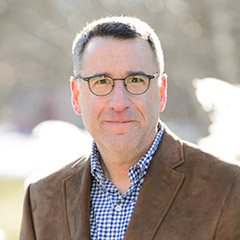
Paul Michelman is editor in chief of MIT Sloan Management Review. He tweets @pmichelman on Twitter.
During the third season of HBO’s brilliant series The Sopranos, Carmela Soprano, played by Edie Falco, visits a psychiatrist. The psychiatrist pushes Carmela to recognize her accountability as the wife of murderous mob boss Tony Soprano.
Here is an edited version of the exchange:
Dr. Krakower: You’ll never be able to feel good about yourself, you’ll never be able to quell the feelings of guilt and shame that you talk about as long as you’re his accomplice.
Carmela: You’re wrong about the accomplice part, though.
Krakower: Are you sure?
Carmela: All I do is make sure he’s got clean clothes in his closet, and dinner on his table.
Krakower: So, enabler would be a more accurate job description for you than accomplice. My apologies.
Carmela: So, you think I need to define my boundaries more clearly, keep a certain distance, not internalize my …
Krakower: What did I just say?
Carmela: Leave him.
Krakower: Take only the children, what’s left of them, and go.
Carmela: I would have to get a lawyer, find an apartment. Arrange for child support …
Krakower: You’re not listening. I’m not charging you, because I won’t take blood money. And you can’t either. One thing you can never say is that you haven’t been told.
Krakower’s insistence that Carmela own the unwashable stains of enablement should have special resonance for anyone in a position of influence today, no matter how starkly different the details of your life may be.
Most of us don’t actively promote hatred and violence, or aim to keep others down, or purposefully contribute to a less hospitable world. But we do strap on blinders. We rationalize, deflect, and deny. We follow the easier path. And we own every choice we make. The greater our power, the greater the weight each choice carries.
We can choose not to engage in improving the world. We can seize on every advantage available to us and our companies without thought to the consequences. We can act as if the planet and the global economy are not among our most critical stakeholders. We can join the crush of others who are just hoping to play out the string: keep our heads down, meet our numbers, collect our bonuses, and abdicate long-term responsibility to the next generation.
But when we make those choices, we do violence against the future.
The alternative is to have the courage to accept a more difficult reality: The only way we can protect what we love is by actively pursuing a stable, just, and sustainable world. Every action has a consequence. Every inaction perhaps even more so.
One thing you can never say is that you haven’t been told.
The High Cost of the Actions We Don’t Take
No comments:
Post a Comment